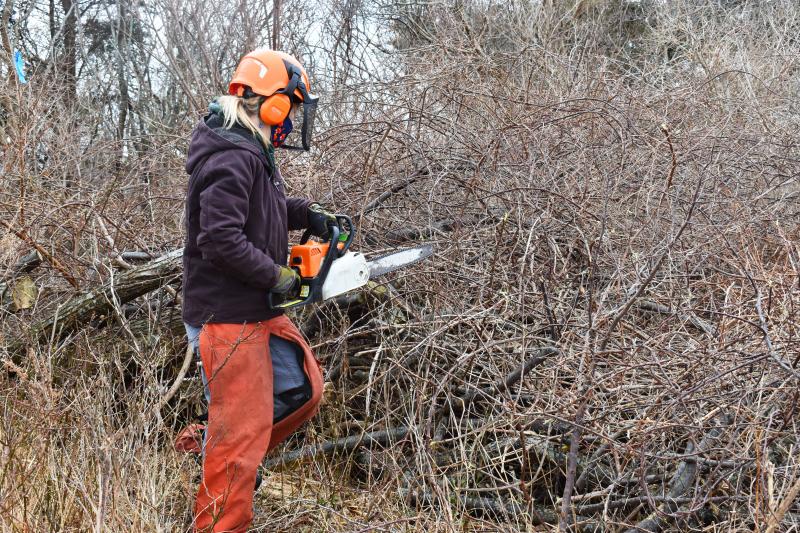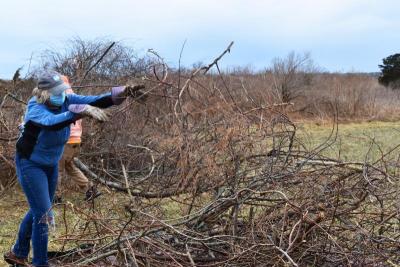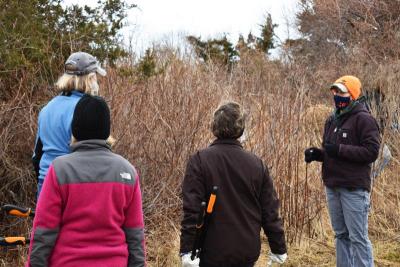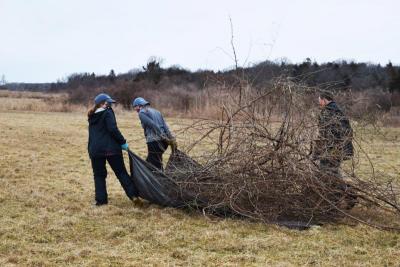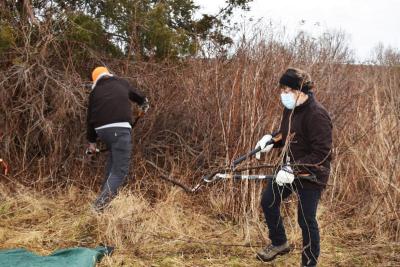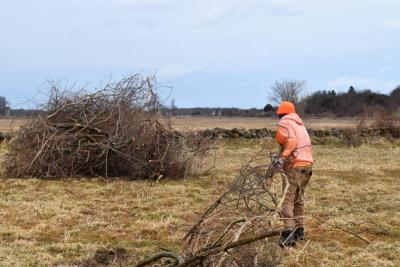Land trust volunteers work to fight climate change at Allens Pond
Just a few years ago, salt marsh plants like smooth cordgrass would be all over the waterline along the low marsh. Now, most of that native habitat is bare and salt marsh flora is being spotted closer and closer to the high marsh of Ocean View Farm and nearby Allens Pond.
A big reason for this, Dartmouth Natural Resources Trust Land Manager Linda Vanderveer noted, is rising sea levels brought about by climate change.
“Because of the rise, more salt water is advancing at high tide than it previously did and for longer periods,” Vanderveer said. “It’s creating an environment that is more saline than it was in recent history.”
To better facilitate the migration of the low marsh vegetation, volunteers from the DNRT and Mass Audubon Allens Pond teamed up on Feb. 5 to remove some of the invasive species plants around the Ocean View Farm reserve.
According to Vanderveer, parts of the Allens Pond marsh cannot migrate due to coastal development, noting that “if the marsh can retreat, the grasses will start to move inland.”
“We’re just essentially making it easier for that process to happen,” she added.
The invasive species removal is just the first step in the process, Mass Audubon scientist Gene Albanese said. Moving forward, the plan is to introduce more native species that can better handle the salinity in the area.
“This is a great first step,” Albanese said. “Invasives are more competitive — they will out-compete our native species. So we really have to clear the palate and have more adaptive plants to better deal with that salinity.”
According to the biodiversity specialist, the effects of climate change in the area have really “gotten more severe” only in the past decade. Within the next century, he said, most of Ocean View Farm Reserve will fully become marshland.
“We’ve really got to work quickly to facilitate dramatic changes,” Albanese said. “But this will definitely help preserve Allens Pond.”



